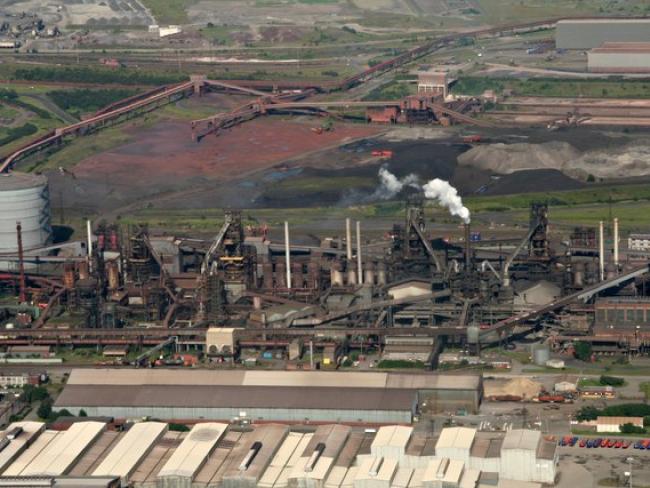British Steel wants to close down the blast furnaces at its Scunthorpe plant. This threatens the jobs of 2,000 skilled workers and the future of the industry.
The company claims, as employers so often do nowadays, that this serves its green agenda. De-carbonisation seems to mean, in practice, unemployment. And always promises of concrete benefits are absent.
The company, owned by Chinese firm Jingye, wants to replace the existing blast furnaces with two electric-arc furnaces, one in Scunthorpe and one in Teesside. The claim is that these will run on zero carbon electricity.
Even if that claim were true, and there’s reason to doubt that, there’s more to this than a straight replacement of one type of furnace for another. Electric arc furnaces are suitable for recycled steel, not primary production.
Net zero policy
Tata Steel has already proposed closing blast furnaces at Port Talbot, again citing net zero policy. Together, these changes would mean that Britain could no longer produce primary steel products. We would be dependent on poor-quality steel imports from the unpredictable, unreliable world market. And that would be the end of our high quality specialist steel industry.
“The steel industry would no longer be self-sufficient.”
The unions involved are solid against the proposals. The union Community says of British Steel’s proposal, “Such an approach would require the import of virgin steel to supplement scrap steel used in furnaces – meaning that carbon emissions would be exported to heavy-polluting countries and the industry would no longer be self-sufficient in the UK. This is dangerous both for the national economy and national security.”
Failed strategy
Unite general secretary Sharon Graham said, “There is absolutely no need for mass redundancies at British Steel. We do not accept the need for one single job cut. The strategy of successive governments has failed. Steel is vital to the UK’s economic success, yet steelworkers are being abandoned by this government.
“Unite’s plan for steel would see the UK once again become a world leader in steel, doubling production, safeguarding employment and creating thousands of new jobs.”
Safety
And as a further impact, this could see an end to the manufacture of rails for Britain’s railways and tramways in Scunthorpe. In future rails would need to come from foreign suppliers.
High quality steel rails are essential for safety, particularly on high speed lines. A broken rail is often catastrophic as happened in the derailment at Hatfield in 2000. That killed 4 people, injured over 70 and disrupted the railways for months.

